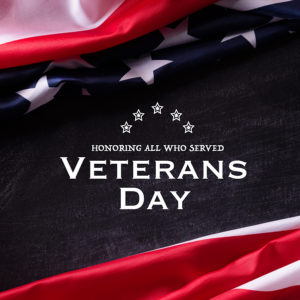101 years ago, a man who started out as a conscientious objector to World War I became that conflict’s greatest American hero when he and just a few other soldiers captured 132 German prisoners.
Sgt. Alvin York knew why he fought, and it wasn’t to make money. When Madison Avenue and Hollywood came looking for endorsements, he refused and said, “This uniform ain’t for sale.”
A generation later, when America appeared to be headed toward a second World War, many asked why we should bother, when the so-called “War to End All Wars” didn’t do any such thing. York was there to explain why America must fight once again.
“Liberty and freedom and democracy are so very precious that you do not fight to win them once and then stop,” York said. “Liberty and freedom and democracy are prizes awarded only to those peoples who fight to win them and then keep fighting eternally to hold them.”
One man who listened and understood was James Battcock, a young Navy seaman. He left his family in 1944 aboard the USS Montpelier to face Japan near the end of the second great war.
In a diary he kept for his family, he wrote about the suicide planes that attacked his ship as they sailed past Pearl Harbor toward the Japanese coast.
“Four suicide planes dove at our ship, shot three down, one explode[d] 25 yds from port beam,” he wrote in 1944. The next year he added, “Still at Okinawa… suicide planes in area.”
And in a letter to his 5-year-old son that he wasn’t sure would ever be seen, he explained why he would leave his wife and two children to sail one third of the way around the world:
“I enlisted because to my way of thinking, when my country is in danger, I think it is my duty to help her all I can, and I want you to be proud of me, as I was of my father,” Battcock wrote. “I want you to know that wherever I go I will try my best, and if it is God’s will that I should be taken from my little family, then I will die happy fighting for my country, as I would want my son to do if ever our country is in danger.”
Alvin York’s name is in all the history books, and in all likelihood you never heard of James Battcock. But they are just two of 41 million ordinary Americans who have worn the uniform since the first shots of the Revolution were fired at Lexington.
It is warriors like these who we honor on Veterans Day: York, Battcock and the millions just like them who came before — and after. We celebrate those men and women because they see more clearly than most that our ability to enjoy liberty and freedom is contingent upon our willingness to fight for it.
And we praise them for stepping in and preserving this nation for our families, just as Battcock did so many years ago for his little son.
At the end of the Korean War, President Eisenhower met with a few dozen wounded men and said their nation needed to see them in uniform, as a reminder of why we’re privileged to live our extraordinary lives in America.
He told them they can never put their uniforms away, and that they live to remind their fellow citizens why they sleep soundly at night.
Today, this nation sees its veterans, and honors them — and remains in awe of those who love America so much that they would risk everything to protect it.

